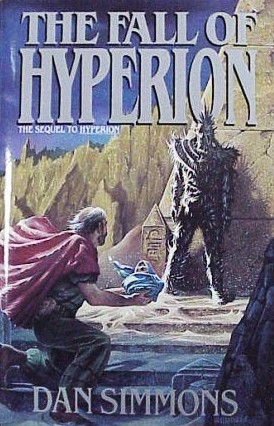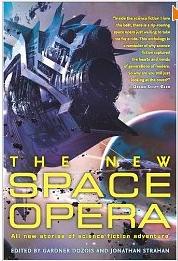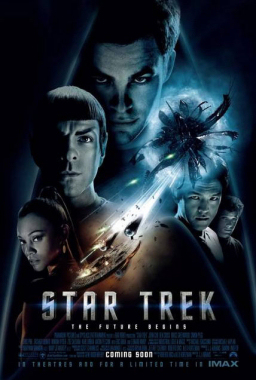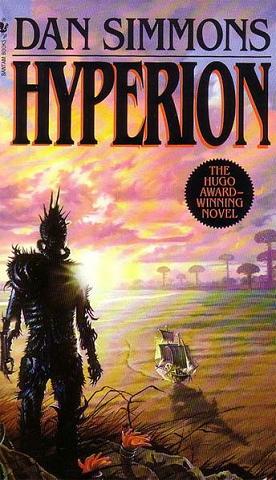A lesser light once asked Ummon //
Please deliver this learner
from darkness and illusion
quickly \\//
Ummon answered //
What is the price of
fiberplastic
in Port Romance]
– Dan Simmons in The Fall of Hyperion

Over two years ago, I ended my post about Hyperion with a note saying how unlikely it would be for its sequel to be worthy of the standards set by that excellent novel. Having stumbled across the book in a store in Kuala Lumpur and having devoured it over the course of my holiday, I am sad to report that this is indeed the case.
The Fall of Hyperion is a much more conventional space opera tale than the original was. It does away with the frame story device that made the original so memorable and tells the story in a more straightforward manner. There are now two narrative threads, one continuing the story of the six remaining pilgrims as they finally reach the Time Tombs. The other focuses on the government of the Hegemony as they respond to imminent war with the Ousters while trying their best to keep track with what is happening with the pilgrims on Hyperion.


